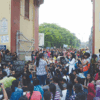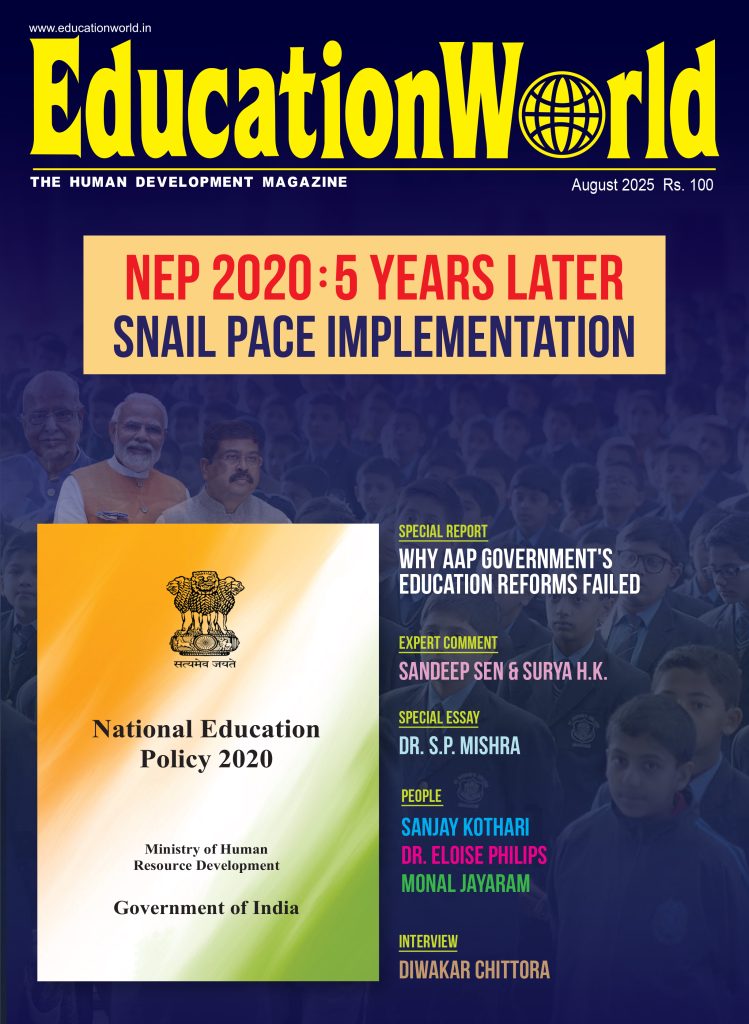Tamil Nadu: ASER shock
The 12th Annual Status of Education Report (ASER) 2017 titled ‘Beyond Basics’ — published by the highly reputed Mumbai-based NGO Pratham — which for the first time focuses on the learning attainments of children in the age group of 14-18 years in 28 districts across 24 states countrywide, has shaken educationists in Tamil Nadu. For this survey, Madurai district (pop: 3.03 million) was selected to assess the maths skills and reading capabilities of children in the 14-18 years age group in Tamil Nadu (pop: 72 million), which enjoys a national reputation for churning out maths whiz kids by the thousands.
The survey, which assessed 1,044 youth of 925 households in 60 villages of Madurai district, highlights that mathematical capabilities are shockingly low among the states secondary school students. Surprisingly more than half of high and higher secondary school students struggle to do basic arithmetic. A mere 24.6 percent of students in this age group can do simple subtraction sums, 47 percent can do simple division sums and only 28.4 percent can recognise numbers from 10 to 99.
Data relating to the reading capabilities are perhaps more encouraging. But 17 percent of youth in secondary and higher secondary cannot read a grade II level text in Tamil with sufficient comprehension, and 25 percent cannot read simple English language sentences.
The surveyed youth, however, are better equipped with life skills with 88.7 percent able to count money, 72 percent able to read and understand written instructions, and 79.8 percent capable of managing a budget. However, 62.4 percent of youth could not calculate a discount, over 40 percent could not identify their own state on the map of India and 30 percent could not name India’s capital. Although only 8.9 percent of youth in this age group were not enrolled in school or college, a mere 3.9 percent of youth were enrolled in vocational training courses, according to ASER Rural 2017.
A major reason for the poor learning outcomes of students in high school and higher secondary schools is s.16 of the Right of Children to Free and Compulsory Education (RTE) Act 2009 which stipulates automatic promotion of children from classes I-VIII. Over the past seven years since the Act became law, children who cannot read simple sentences or do simple arithmetic sums have been promoted continuously until class VIII. The result is they find it difficult to cope with the curriculum and simplest test when they enter high school. Moreover, the casual attitude, poor quality of teachers and the focus of government and private schools on students securing high marks in examinations rather than developing basic skills and knowledge, has also contributed to deteriorating learning standards. However, the good news is that the Union HRD ministry has decided to scrap the no-detention until class VIII policy and the AIADMK government in Tamil Nadu is also likely to scrap it, says Dr. C. Satish, senior principal and director of the Paavai Group of Schools, Namakkal.
A major finding of the ASER 2017 is that use of digital devices among youth is high with 95.3 percent using mobile phones and 63 percent using computers. However, 59.6 percent of youth said they have never used the Internet. With technology becoming an essential part of daily life, constructive use of mobile phones and computers has proved educative for neglected rural students. In the digital era, all students have to become familiar with mobile phones and use them for research, accessing study materials and information. Students using computers and the Internet have the opportunity to supplement classroom lessons from videos and can also take online courses. However, the most needed intervention in education is reform of the assessment system which rewards rote memorisation instead of critical thinking and analytical skills. Exam question papers should test comprehension capabilities of children and not memory, says Rajaraman Krishnan, co-ordinator of the Chennai chapter of Asha for Education, an NGO which works for educational development of underprivileged children in rural Tamil Nadu.
Stung by constant criticism from educationists and the media about the outdated Tamil Nadu State Board of School Education (TNSBSE) syllabus which encourages verbatim memorisation, the state government has commissioned a new and revamped syllabus for classes I-XII in phases starting from the academic year 2018-19. Major changes have been proposed in textbooks and assessment systems with emphasis on application-oriented questions to test students thinking skills.
However, unless these reforms are rigorously implemented by teachers with a changed mindset, it will be a long while before Tamil Nadu’s schools regain their lost reputation for producing the country’s most admired whiz kids.
Hemalatha Raghupathi (Chennai)

















Add comment